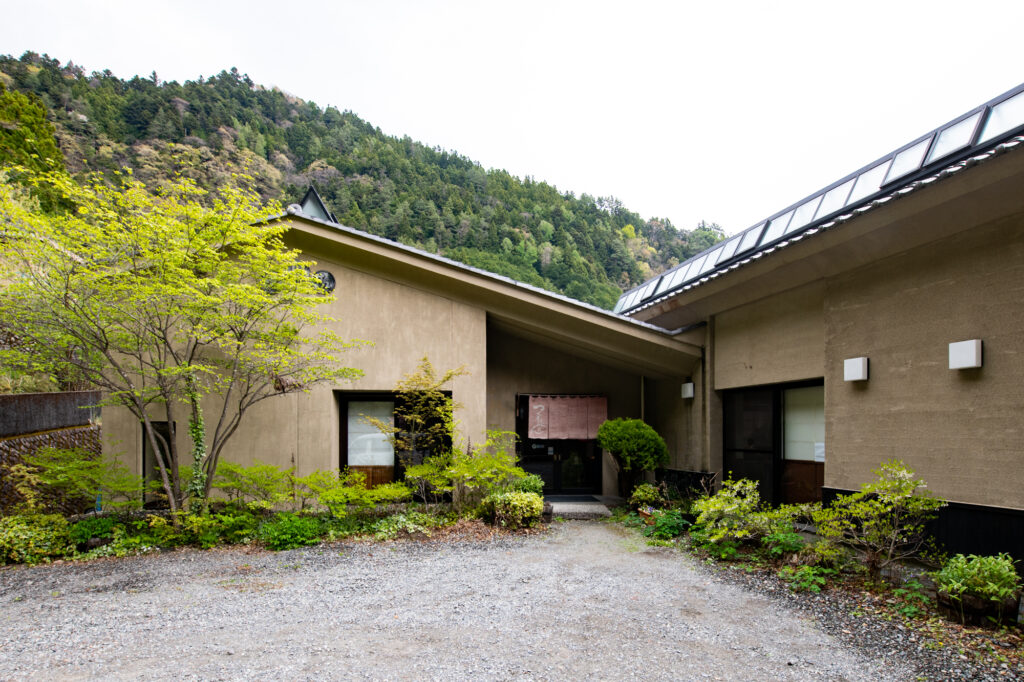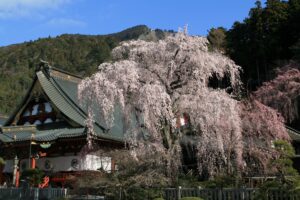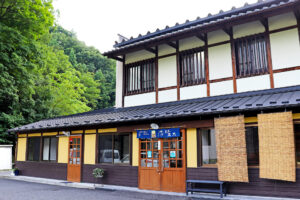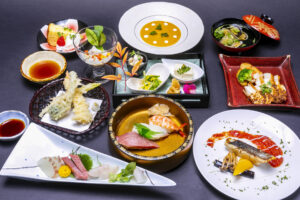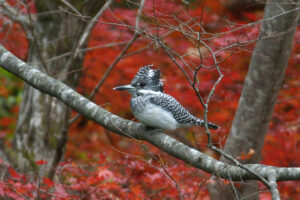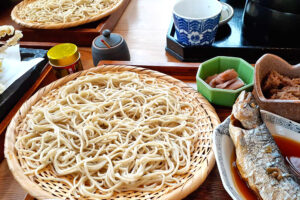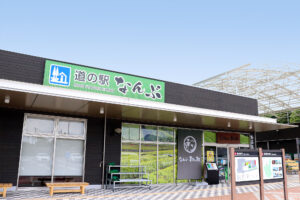Tukutabe-kan
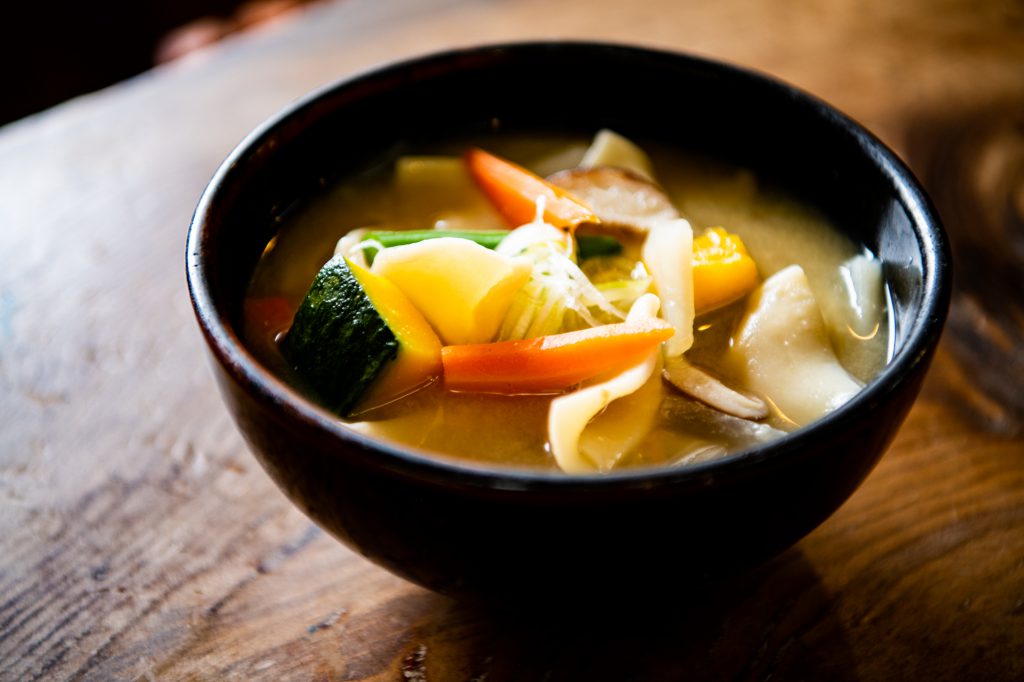
Tsukutabe-kan is located amid mountainous forest, approximately 7km away from the National Route 52, which may make it somewhat challenging to access. When you reach the “Jukkoku Entrance” signal, turn towards mountain and go up for about 15 minutes. We mentioned “somewhat challenging”, but it is only for 15 minutes, so, you see it is not as challenging as it may seem! As you navigate the steep hill, a driving becomes enjoyable, offering breathtaking views of fresh and exquisite shades of green.
Passing through several quaint villages that exude a nostalgic charm, your appetite and excitement should be just right by the time you arrive.
While there is parking available near the restaurant, it is also recommended to park at the spacious Jukkoku Tourist Parking lot, take a stroll up the mountain path, and relish a brief hike.
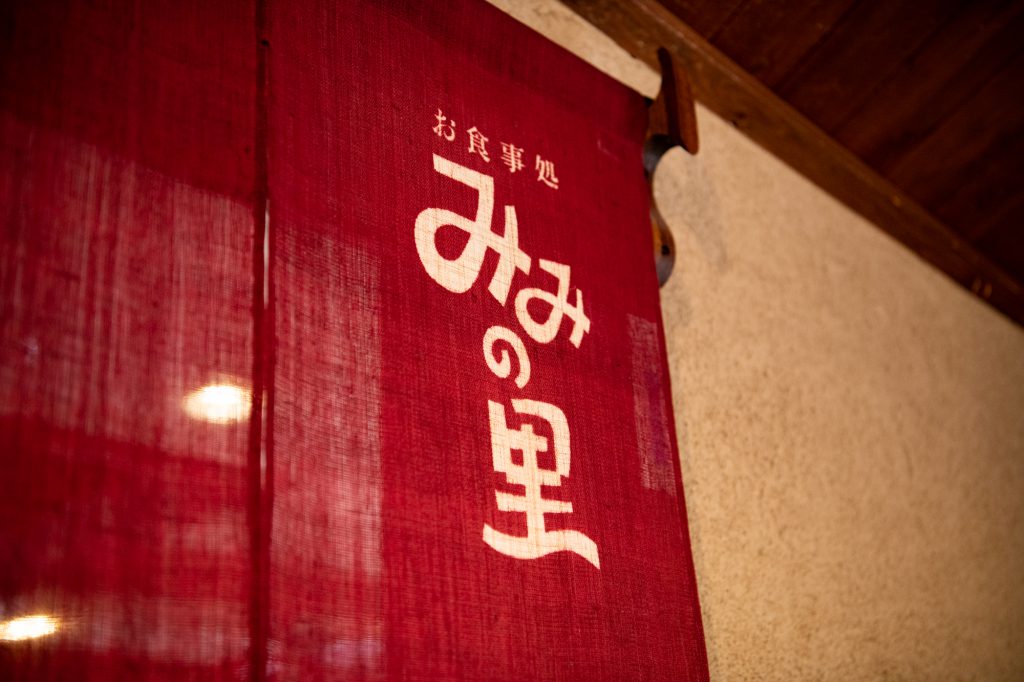

The signature menu of “Tsukutabe-kan” is “Mimi”. It is a short version of “hoto” noodles, a specialty of Yamanashi prefecture.
Note: “Hoto” is thick wheat noodles, similar to “udon” noodles, but generally thinner. It is served in a miso-based soup. It’spronounciation is akin to “hootoo” with with long “o”s.
Like “hoto”, it is cooked in miso soup with cooked vegetables. The noodles are folded resembling a hat or Italian orecchiette, with a soft edge and an “al dente” texture where the dough overlaps.
Italian orecchiette, as you may know, is named after an ear. If you are familiar with Japanese, the term “mimi” might quickly bring to mind the word for ear in Japanese. However, don’t jump to a conclusion!
This “mimi” is derived from a traditional farming tool called “mi” which functions like a dustpan. Now, some of you may be wondering, “Why on earth did the locals name their pasta after a dustpan?”
Well, the “mi” was indeed used on farms, but it was not for collecting dust. Instead, it played a role in carrying rice and selecting the best grains. For the locals, the “mi” was a symbol of collecting happiness!
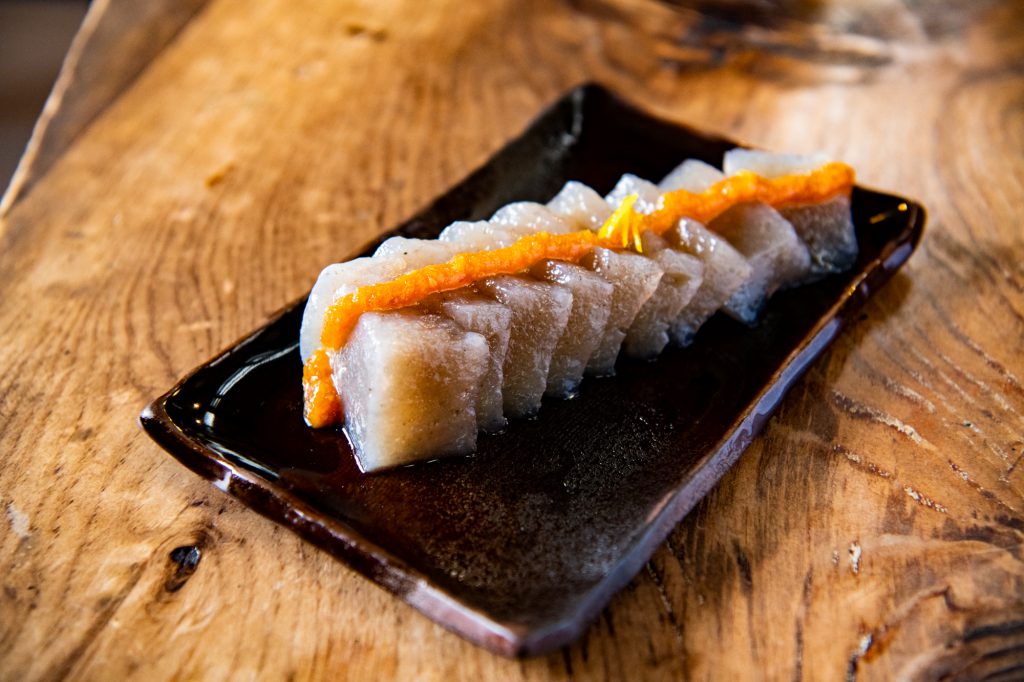
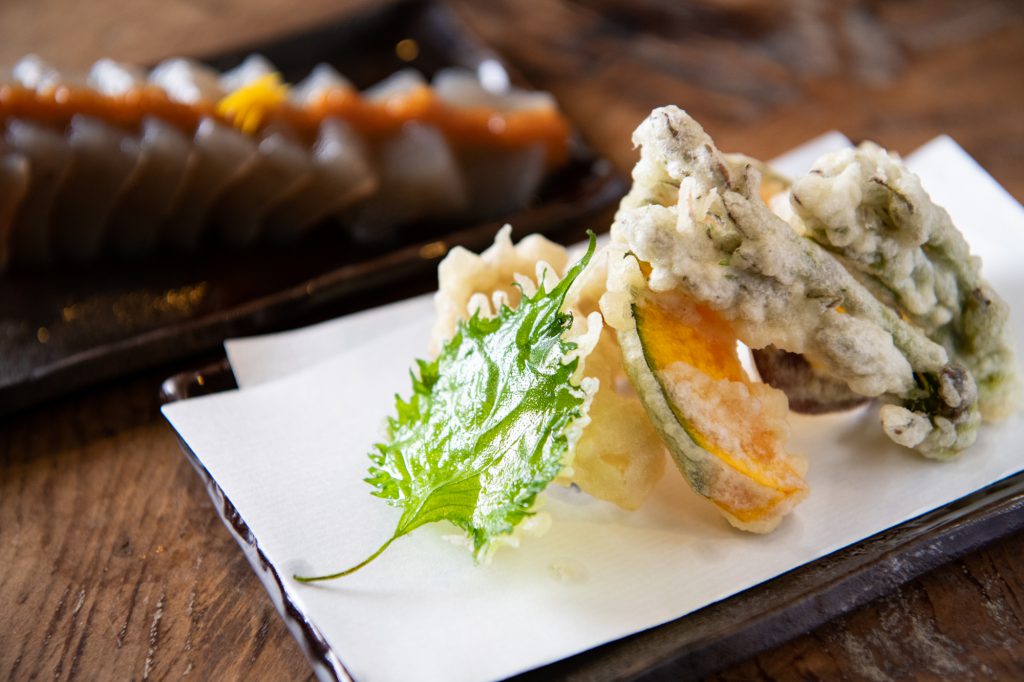
The happiness collected in the “mi” at “Tsukutabekan” is the taste of umami of meticulously taken broth with dried fish and shiitake mushrooms. The miso is handmade.
The flavour is incredibly gentle as if it seeped into your heart. While you can eat “mimi” without a reservation, but it is highly recommended to book in advance and try the “Mimi Gozen” (a course meal).
A must-try is the simmered vegetables, carefully prepared by local women and men, including the simmered leafy vegetables “Ji-na”, known as “nozawana” in other regions.
The “Yuzu Miso”, miso made with local yuzu citron, atop the “Sashimi Konnyac, or konjac” is also delicious.
Note: Konjac, also known as devil’s tongue jelly in English, is made from elephant yam and has a jelly-like texture.
Simple yet delicious. You will taste the love of the locals who prepare the dishes. By the time you finish, you will be thinking, “When should I come next?”
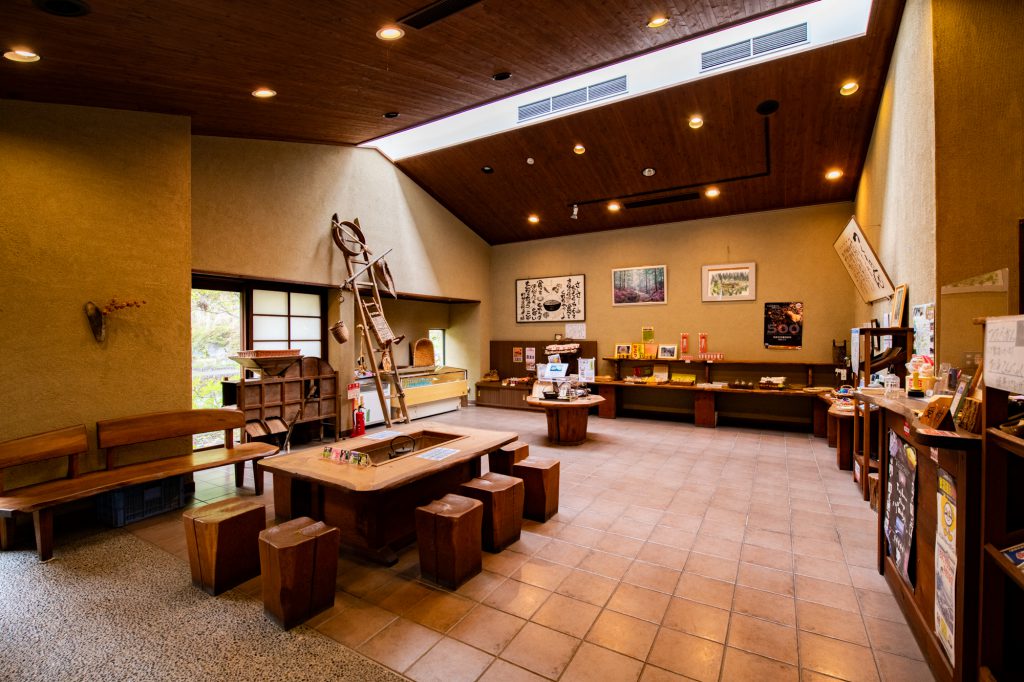
Here, you can also experience making “mi” pasta.
It is a special experience to watch the aunties stretch, cut, and fold the dough, while enjoying your meal, but trying it yourself is truly extraordinary.
Remember to take home the protagonists behind the scenes at “Tsukutabe-kan”, which are placed on the table for your use. They are the local “Kajikazawa salt,” and “neri togarashi (kneaded red pepper),” available at the souvenir corner near the entrance!
Tukutabe-kan
| address | 2294-7, Jutani, Fujikawa-cho, Minamikoma-gun, Yamanashi, 400-0606, Japan |
| TEL | 0556-20-2020 |
| Business Hours | 10:00-16:00 *Last order 14:30 |
| regular closing day | Thursdays, year-end and New Year holidays |
| Home Page | http://www.michinoeki-fujikawa.jp/tukutabe/ |
